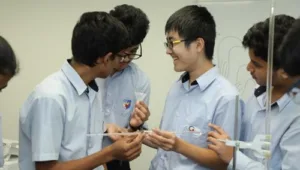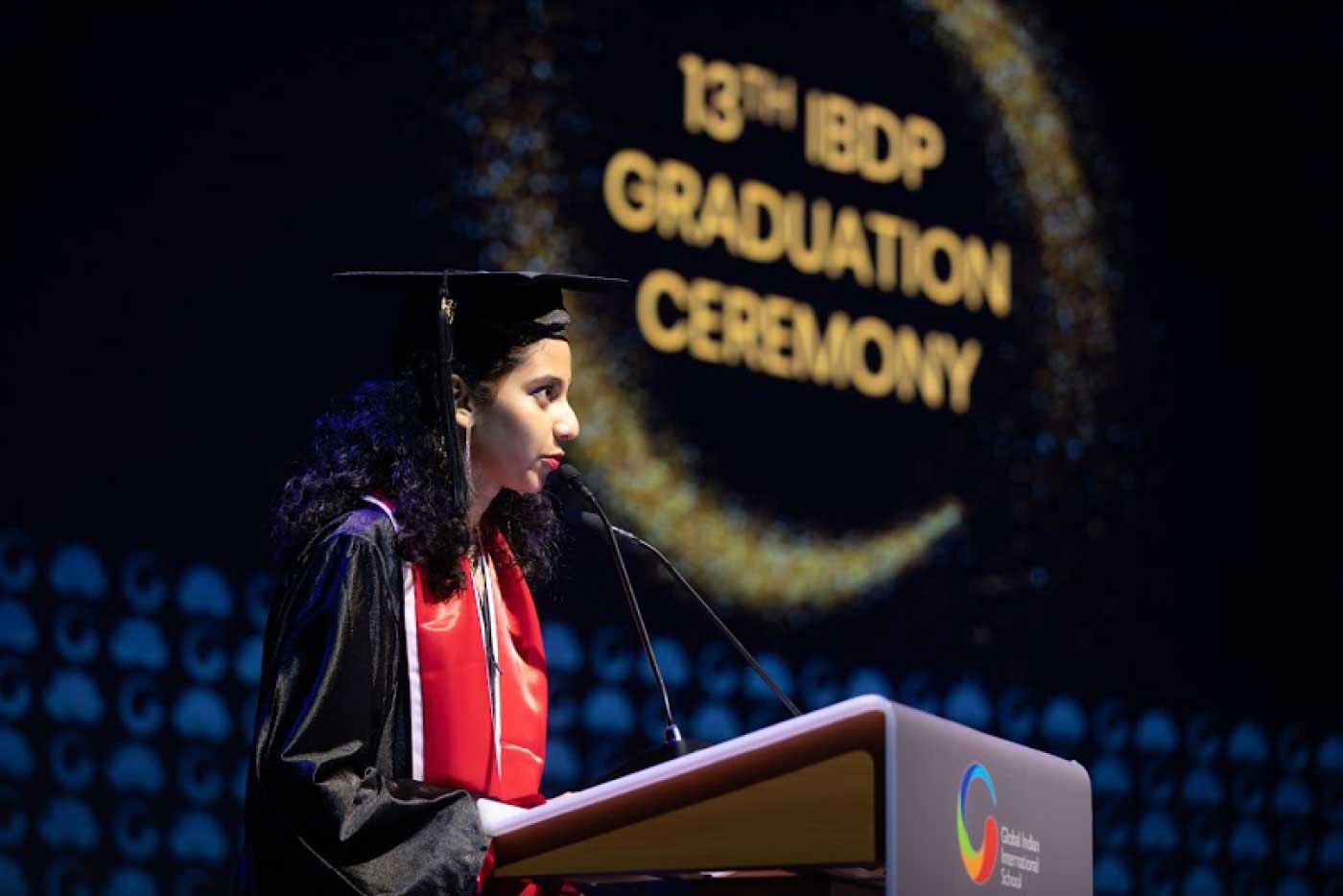Download our FREE Academic Calendar now! 📚 Start your child’s journey to success.
To create an interest in and awareness about science and technology, the Government of India declared 28th of February the National Science Day. This day not only commemorates the achievements of Dr. C.V. Raman but also gives students a chance to learn about science and understand its importance in their day-to-day life.
This day also gives students an opportunity to learn about and appreciate the scientists who made many important scientific and technological inventions. It is, in fact, a great way to inspire students to showcase their talents and also instill in them an interest in science and technology.
What is National Science Day?
National Science Day celebrates the discovery of the Raman Effect by Dr. C.V. Raman for which he was awarded the Nobel Prize in Physics. On this day, the Government of India felicitates scientists for their contribution to science.
The National Science Day aims at increasing awareness among people about the significance of science and technology in their everyday lives. One of the national science day quotes by Dr.A.P.J. Kalam sums up the importance of science perfectly: “Science is a beautiful gift to humanity; we should not distort it.”
Why Do We Celebrate it on February 28th?
It was on the 28th of February, 1928, that Dr. C.V. Raman declared that he had invented the Raman Effect. The National Council for Science and Technology Communication (NCSTC) proposed for National Science Day to be celebrated on this day to salute his achievement.
The Government of India accepted this proposal and celebrated the first National Science Day on 28th February 1987.
What is the Raman Effect?
The Raman Effect is about the flexible distribution of photon particles. According to the Raman Effect, when a light wave emerges out of a liquid, a portion of the wave is distributed in a direction different from the direction of the incoming light wave.
Most of this scattered light is of an unchanged wavelength. This research by Dr. C.V. Raman explains phenomena, such as why seawater appears blue.
What are the Objectives of National Science Day?
The main objective of National Science Day is to awaken an interest in science and inspire students to perform new experiments and increase their knowledge of science. National Science Day also aims at making students aware of the latest developments in science and technology.
A variety of scientific activities and programs are organized on this day and students from schools and colleges from all over the country participate in these activities enthusiastically.
How is National Science Day Celebrated?
To celebrate National Science Day, students from all over the country demonstrate different science projects. The national and state-level science institutions display their latest research. Noteworthy efforts in science are celebrated and discussions are held on the implementation of new technologies.
Public speeches, radio and TV talk shows, science movies, and exhibitions are hosted to share new scientific concepts, themes, and developments. Quiz competitions, debates, essay-writing competitions, sky-watching, and many such interesting events are conducted, too.
In schools, the international school in Ahmedabad organizes science fairs where students display various science projects. The high school in Ahmedabad encourages students to participate in co-curricular activities, such as debates, quizzes, and essay-writing competitions as part of National Science Day.
10 Things Students Must Know
These are the 10 important things students must know about National Science day:
1. C.V.Raman was an extraordinary student. He passed his 10th at the age of 11 years after which he passed the intermediate-level exam and joined the Presidency College in 1902.
2. Dr. C.V.Raman received the highest civilian award, the Bharat Ratna, in 1954. His journey began when he introduced Raman Spectroscopy for observing the vibrational and low-frequency modes in the system. This is frequently used in chemical laboratories and serves as the fingerprint for the substance from which light is scattered.
3. According to the academy citation, Dr. C.V.Raman was awarded the Nobel Prize in Physics in 1930 for his work on light scattering. The scattering phenomenon has been named “Raman Scattering” or “Raman Effect”.
4. In the year 1986, the Government of India declared February 28th the National Science Day.
5. The main objective of this day is to celebrate the significance of science and its applications worldwide.
6. The first National Science Day was celebrated on February 28th, 1987.
7. The theme of National Science Day 2018 is “Science and Technology for a sustainable future”. This theme has been chosen to raise public appreciation of the scientific issues involved.
8. The National Council for Science and Technology Communication (NCSTC) of the Department of Science and Technology (DST) is the nodal agency to support, encourage, and coordinate such celebrations throughout the country, especially in scientific institutions and research laboratories.
9. The DST also started the National Awards in 1987 to encourage and recognize excellent efforts in science popularization and communication and to promote scientific attitude.
10. The National Award for Women Development for 2017 is also conferred on NSD on Socio-Cultural Development Center, Odisha.
National Science Day Activities
Various activities are conducted on the occasion of National Science Day in India. These activities encourage the whole-hearted participation of students to showcase their skills and learn about new scientific research and development. These science day activities are as follows.
1. Speech Competition
Schools and colleges all over the country organize inter-school and inter-college speech competitions as part of science day celebrations. The topics are based on science and technology and the latest trends in the technology sector and are an excellent opportunity to spread awareness amongst students about science and technology.
2. Quiz Competition
Quizzes are a wonderful way to increase the general knowledge of students. Multiple teams compete with each other during quiz competitions held as part of national science day activities.
As the games proceed, the questions become more challenging. Questions based on science, technology, mathematics, and logical reasoning are asked at these quiz competitions. Quiz competitions are not only interesting and entertaining but also enlightening for students.
3. Essay Writing Competition
Essay writing competitions are another interesting activity that can be held on the occasion of National Science Day. Students who have a flair for writing can enhance and also showcase their penmanship during such competitions.
The topics for the essays should revolve around science, technology, the latest inventions, scientists, and even Digital India Campaigns.
4. Science Exhibition/Science Fair
Students who wish to exhibit their talents can do so through science exhibitions and science fairs. They can prepare models of various natural phenomena and scientific and technological inventions and share their knowledge with other students. Schools can showcase their science projects at science fairs to help spread awareness about science and technology.
5. Science Debates
Teams can participate in science debates and increase their science-related knowledge. Such debates are a good science day theme that gives students a chance to make sensible arguments, and state facts and statistics to prove their point.
Debates are also a good way to help children gain confidence in themselves and improve their debating skills.
Also Read: Science vs Commerce vs Arts: Which is Best?
Conclusion
The National Science Day, which is held on the 28th of February in honor of Dr.C.V.Raman, is an enriching platform for students all over the country. Students get to learn more about the latest scientific and technological developments and inventions. They also get a chance to participate in various science-related activities in their schools and colleges.


































